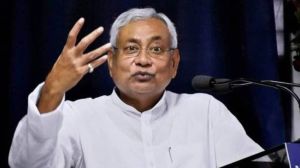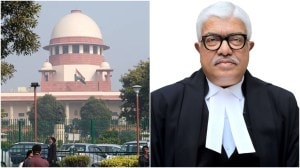State of the Union
Given that the exercise of reviewing the Constitution was mired in so much suspicion, there is a welcome open-endedness about the first se...

Given that the exercise of reviewing the Constitution was mired in so much suspicion, there is a welcome open-endedness about the first set of consultation papers released by the National Commission to Review the Working of the Constitution. The Commission has made it explicitly clear that the views expressed and suggestions contained in them "are not the final views of the Commission", that they are an invitation to public discussion and debate. The Commission has outlined the main areas of India’s functioning as a democracy that are in need of reform; it has delineated alternative, specific proposals to carry out such reform. But the real process begins now. The challenge now is to kickstart a participatory and inclusive public debate on these options. The challenge, and it is a daunting one, is to seize the available fora and spaces for such an open debate, to invent them if necessary. The Commission’s shirking of certitude has shifted the onus on us — the ball is now in our court.
Paradoxically, even as more and more marginal groups have been enfranchised over the years, the effective control of the people on the government’s agenda has diminished. The use of money and muscle power, the entry of criminals into the political arena, threatens to convert even the five-yearly electoral exercise into a ritual drained of democratic content. Does this obvious failure call for a systemic overhaul? Or will reform within the ambit of the present system be enough? The Commission suggests, for instance, the adoption of the Gandhian model — with direct elections being held to the primary tier of governance and all the upper tiers being filled up by representatives indirectly elected by those at the lower tiers. This is clearly an overreaction. Despite the distortions, the voters have by and large, been able to exercise choice — the increasing frequency of anti-incumbency verdicts testifies to this. Where the system has really failed is in providing them a wider menu to choose from. Here, theCommission’s recommendations for legislation to govern political parties needs to be taken up seriously. Years of self-regulation have not worked. It could be made mandatory by law for parties to conduct inner-party elections to various levels at regular intervals, for instance. Or to maintain accounts of the receipt of funds and expenditures. Or to deny a ticket to a candidate who has been convicted by any court for any criminal offences or against whom the courts have framed criminal charges. Equally welcome is the Commission’s recommendation that the anti-defection law be amended to ensure that any legislator who wishes to leave a party should forfeit his or her seat and go back to the people.
The Commission has identified and addressed many other areas of vital public concern. For greater stability of the system, it recommends that no candidate should be declared elected unless he or she secures more than 50 per cent of the votes cast, among other suggestions. But it needs to be reiterated that these are just preliminary recommendations. We need to join the debate.





- 01
- 02
- 03
- 04
- 05


























